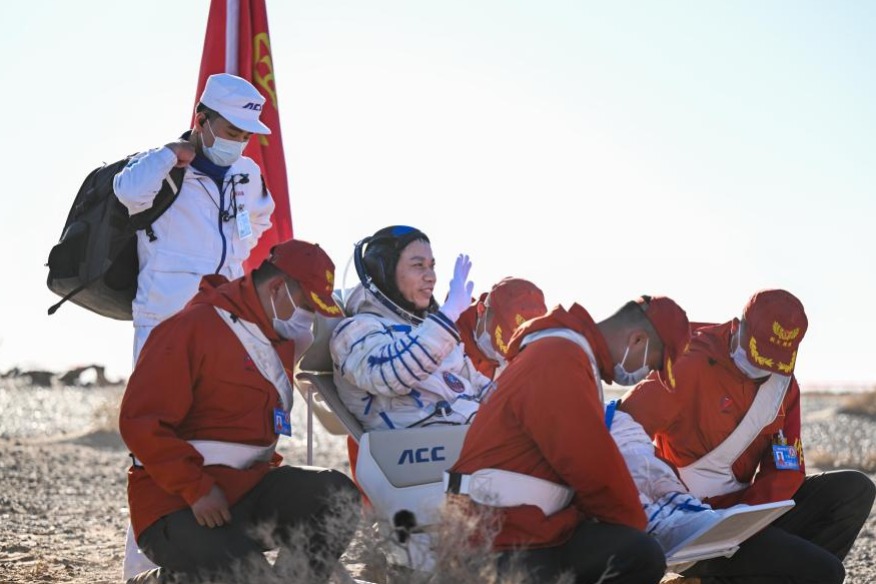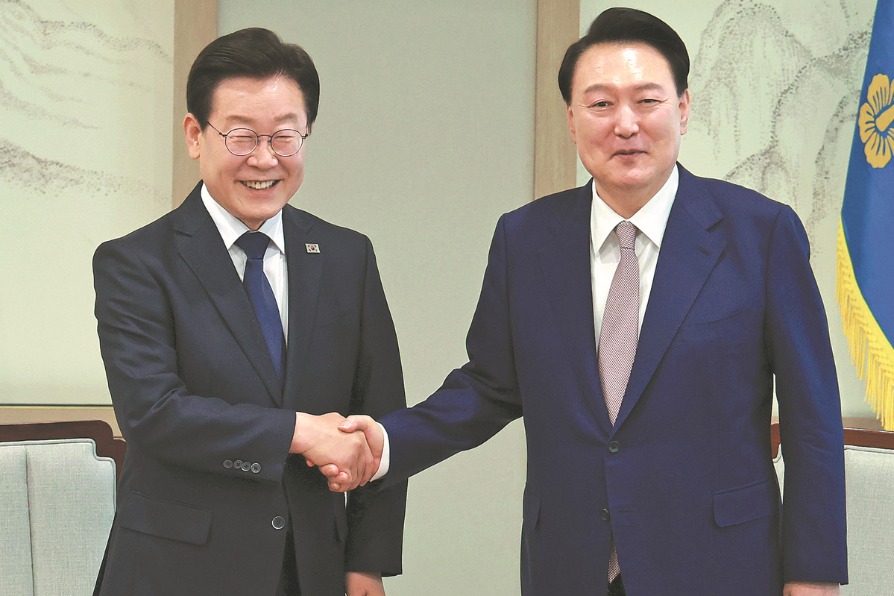Israel stance obstacle to peace in Palestine
By JAN YUMUL in Hong Kong | China Daily Global | Updated: 2023-06-30 09:11

Failure to explore talks over two-state solution an impediment, experts say
Differences in the narratives between the Israeli and Palestinian people, as well as the failure to explore genuine dialogue on their coexistence as part of the two-state solution, are creating obstacles in finding a peaceful future in their disputed homeland, experts have said.
Finding any solution to the situation, which is exacerbated by continued violence and military encounters, is hampered by Israel's ethno-religious stance and a lack of action to match official pronouncements on both sides, they said.
Analysts also said the Israeli-Palestinian conflict is not between two equal parties, but "between an occupying party with enormous power against an occupied nation", referring to Israel and its aggression. They also noted that Israel is often backed by its staunch ally, the United States.
Palestinian presidency spokesman Nabil Abu Rudeineh said on Monday that establishing an independent Palestinian state was the only solution to achieving security and stability in the Middle East.
The remark was made in response to Israeli Prime Minister Benjamin Netanyahu's comments that he opposed Palestinians' aspirations for an independent state, Xinhua News Agency reported.
According to a report by The New Arab, a London-based news website, which cited Israel's Kan state radio station, Netanyahu said Israel has no interest in seeing the Palestinian Authority collapse but will curb any Palestinian hopes for an independent state.
Henelito Sevilla Jr, a West Asia analyst and dean of the Asian Center at the University of the Philippines, said Israel's localized colonial policy "that encourages occupation in and annexation of the Palestinian lands "has not only created a sustained resistance among Palestinians, but also created "hardcore nationalist Israelis" who believe they have the right to occupy Palestinian lands.
Critical element
Failing to address the issue of occupation and settlement by allowing the Palestinian nation to finally have its homeland to live peacefully and in harmony with the Israeli people as part of the two-state solution is a critical factor, Sevilla said.
Dina Yulianti Sulaeman, director of the Indonesia Center for Middle East Studies, said one fundamental factor that has prevented the two-state solution from happening is that Israel is ethno-religious.
Netanyahu, when criticizing a United Nations resolution that used the phrase "occupation", said the Jewish nation is not an occupier in its own land and its own eternal capital, Jerusalem, Sulaeman said.
In other words, Israel views the West Bank as belonging to the Jewish people, she added.
"When one party insists on maintaining an irrational view like this, it is undoubtedly challenging to achieve negotiations, because what one party with more power wants is a zero-sum game.
"With all the power it has, including the support of the US and the helplessness of the international community, Israel continues to build illegal settlements specifically for Jews in the West Bank. Thus, this is not a conflict between two equal parties but between an occupying party with enormous power against an occupied nation," Sulaeman said.
On Wednesday, United Nations Secretary-General Antonio Guterres condemned Israel's recent advancement of plans for over 5,500 housing units in settlements in the occupied West Bank, including the retroactive regularization, under Israeli law, of three settlement outposts adjacent to the settlement of Eli.
Guterres' deputy spokesman Farhan Haq said: "Israel's persistent expansion of its settlements in the occupied West Bank, including East Jerusalem, deepens humanitarian needs, significantly fuels violence, increases the risk of confrontation, further entrenches the occupation and undermines the right of the Palestinian people to self-determination."
Ayman Yousef, a professor of international relations at the Arab American University in Jenin, West Bank, said he believes an alternative way to ease tensions is "more normalization, more regional integration and more regional alliances between the Gulf states and Israel".
"Arab normalization will create an alternative to meaningful Palestinian-Israeli negotiation," he said.
























